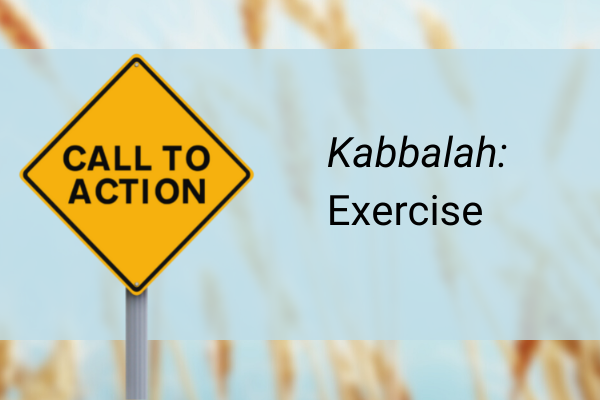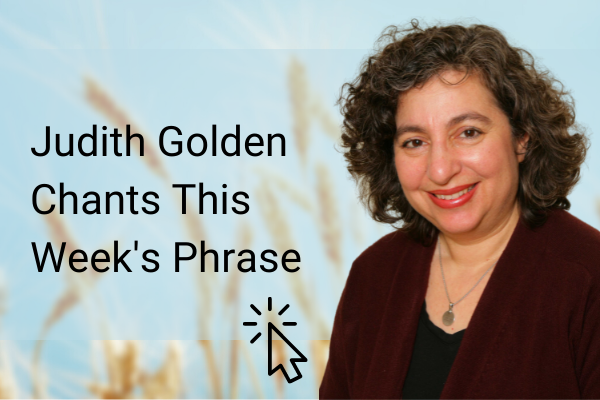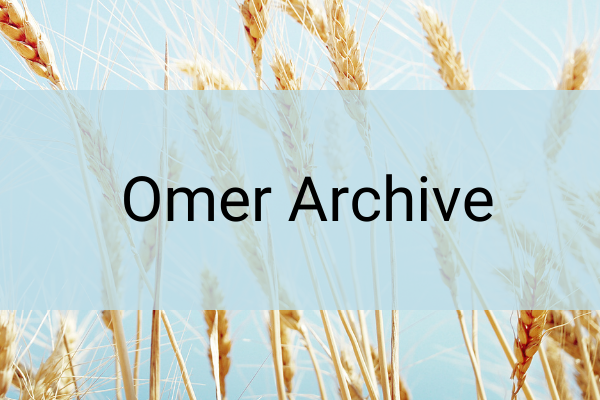COUNT THE OMER 5782
WEEK FIVE OMER MATERIALS
Each week, we focus on topics oriented on middah in the way that Tomer Devorah indicates, as such:
- Chesed/lovingkindness
- Gevurah/strength
- Tiferet/truth
- Netzach/generosity
- Hod/gratitude
- Yesod/silence
- Malkhut/humility
HOD - GRATITUDE
Tomer Devorah says:
When one learns Mishnah, which comes from the Left, one has a specific association with hod.
This enigmatic comment is all Rabbi Moshe Cordovero has to say about the quality of hod in this context. He is referring to the kabbalistic Tree of Life which features both gevurah and hod on the left side, paralleling chesed and netzach on the right. As we have learned, gevurah means “strength” and specifically the quality of restraining. This is the dominant quality of the left side of the Tree of Life, and that relates it to the Mishna because the Mishna is the first authoritative post-biblical codification of Jewish law, and law inherently has the quality of gevurah.
In a deeper sense, the left side of the Tree stands opposite the right, creating the balance that allows for true expression. That alignment positions Hod opposite the generosity of Netzach. The word hod itself comes from the same root as the Hebrew word hoda’ah, which means giving thanks, acknowledging, or admitting. When we appreciate that much of what we have has been gifted to us, we are inspired to give to others.
KABBALAH - EXERCISE OR ACTION

We all encounter many people every day in the context of family, work, shopping, exercise, community service, and many other spheres of life.
Step One: Your exercise for this period is, first, to strive to identify the good that comes from any sort of encounter you have in your day. Sometimes the good you receive will be obvious; other times you will have to spend some time digging to find the good you can identify in the interaction.
Remember that “to receive good” does not mean that the gift has to be extraordinary or even voluntary. You may well receive "good" from someone who is paid to render their services, like a doctor or a delivery person.
Step Two: Thank every person who has a role in bringing that good into existence. It is especially valuable to identify in your verbal expression of thanks the good that you have uncovered, so you don’t just say, “Thanks,” or “Thank you,” but you go further to say, “Thank you for ….” and you fill in the blank by naming the good that you have identified that this other person has had a role in creating.
CHESHBON HA'NEFESH OR ACCOUNTING OF THE SOUL
Now bring the focus of your evening journaling to spotlight issues of gratitude. Every evening (except Friday because of Shabbat) record in your journal anything that you can note regarding gifts or services you received during the day. You should include what you can see that you have received from people – including people who were “just doing their job” – but also don’t neglect to include the blessings you receive from inanimate sources, like clean air and drinkable water, and even the funcitoning of the sewage system.
As you come to awareness of the many and varied gifts that you received this very day, reflect on whether you did or did not feel gratitude.
Note, too, whether you expressed your gratitude for the good you identified in your practice, as above.






